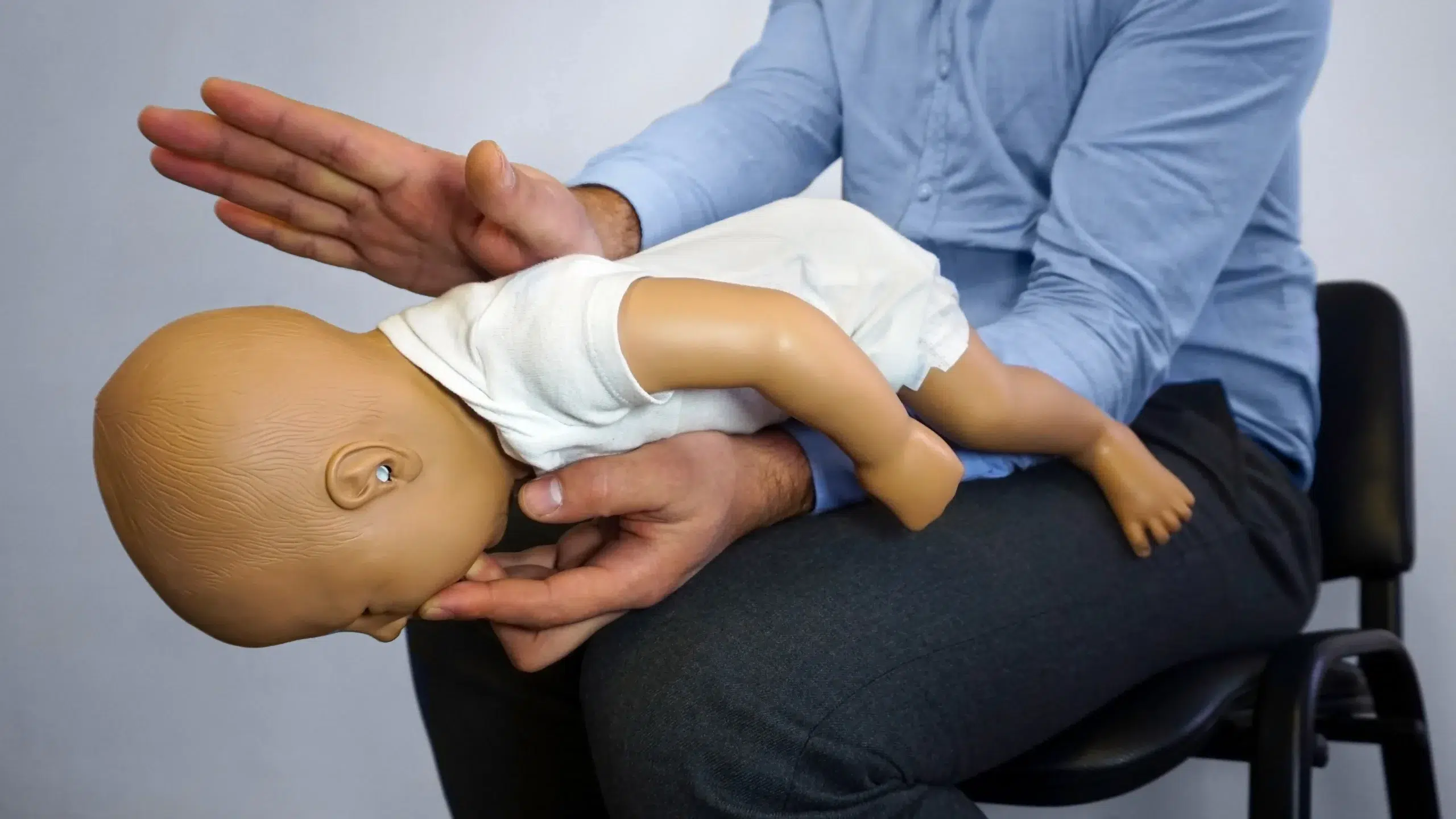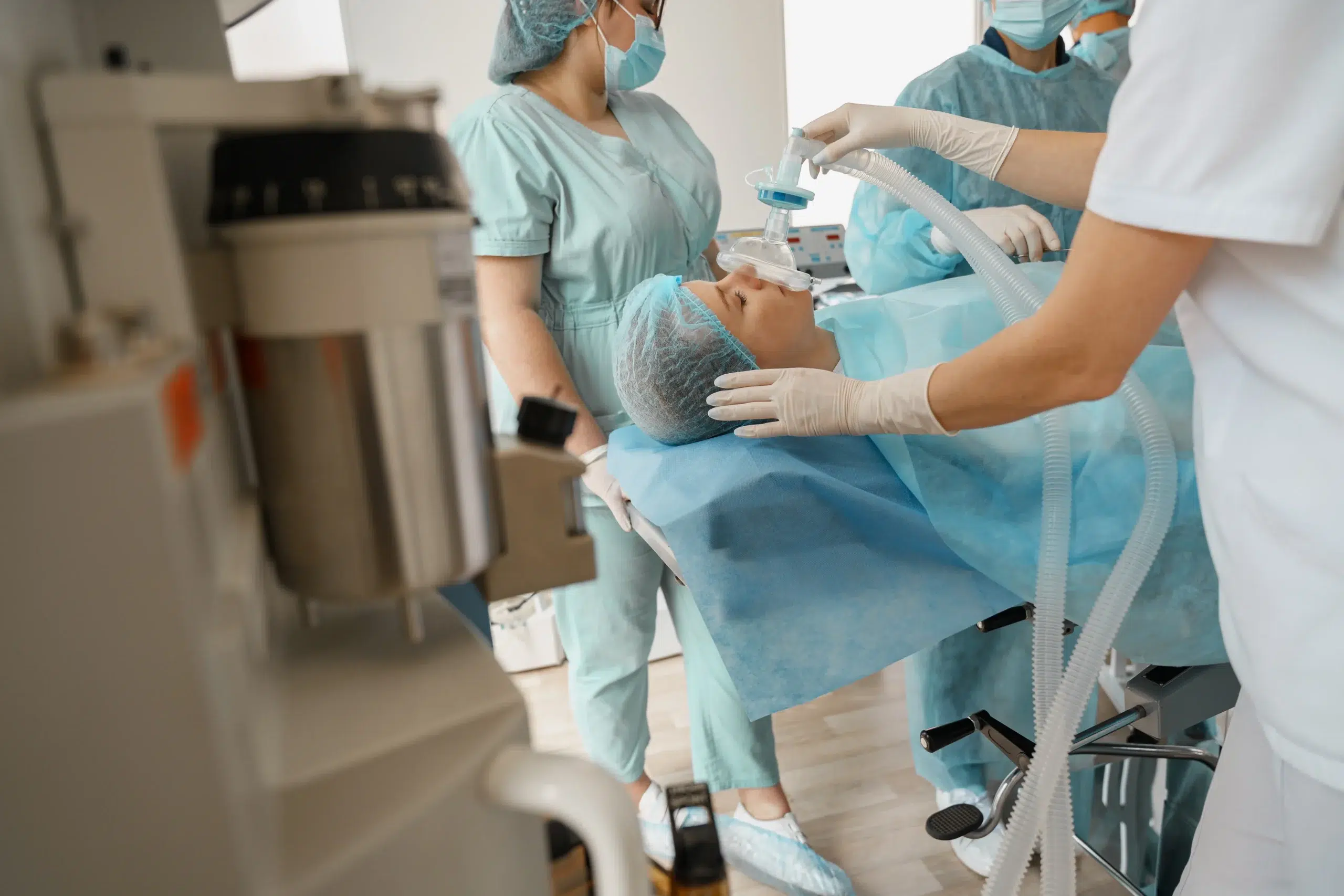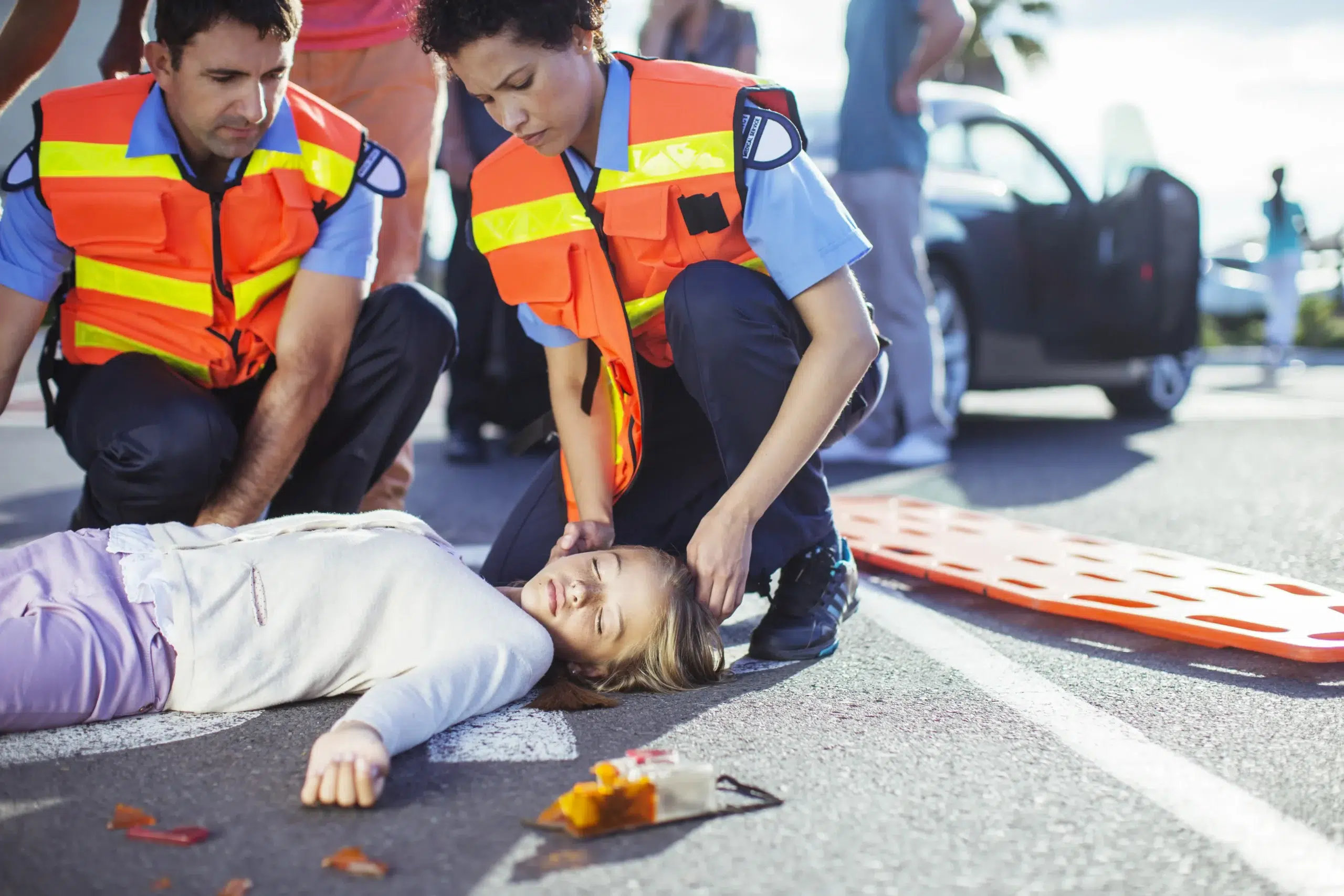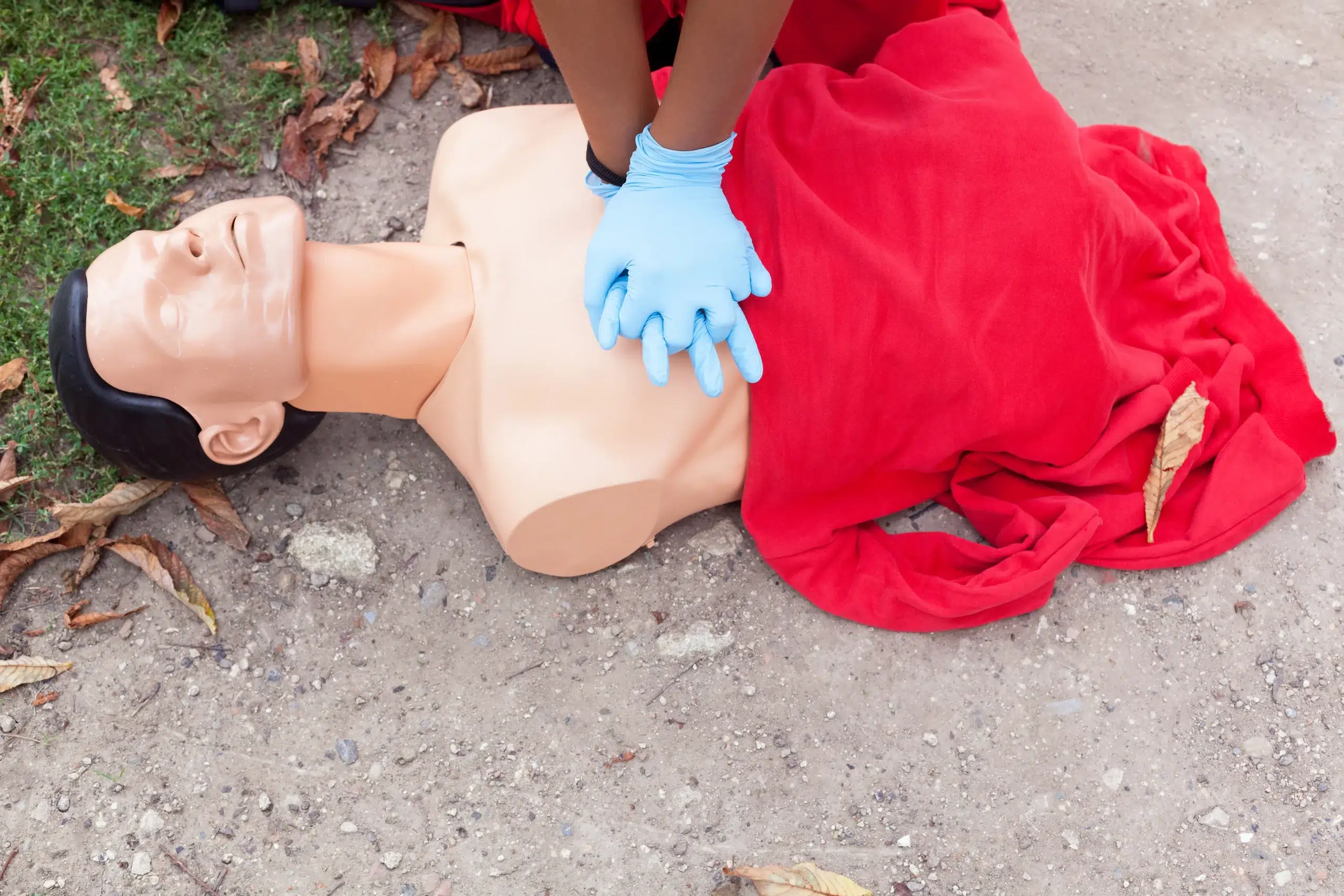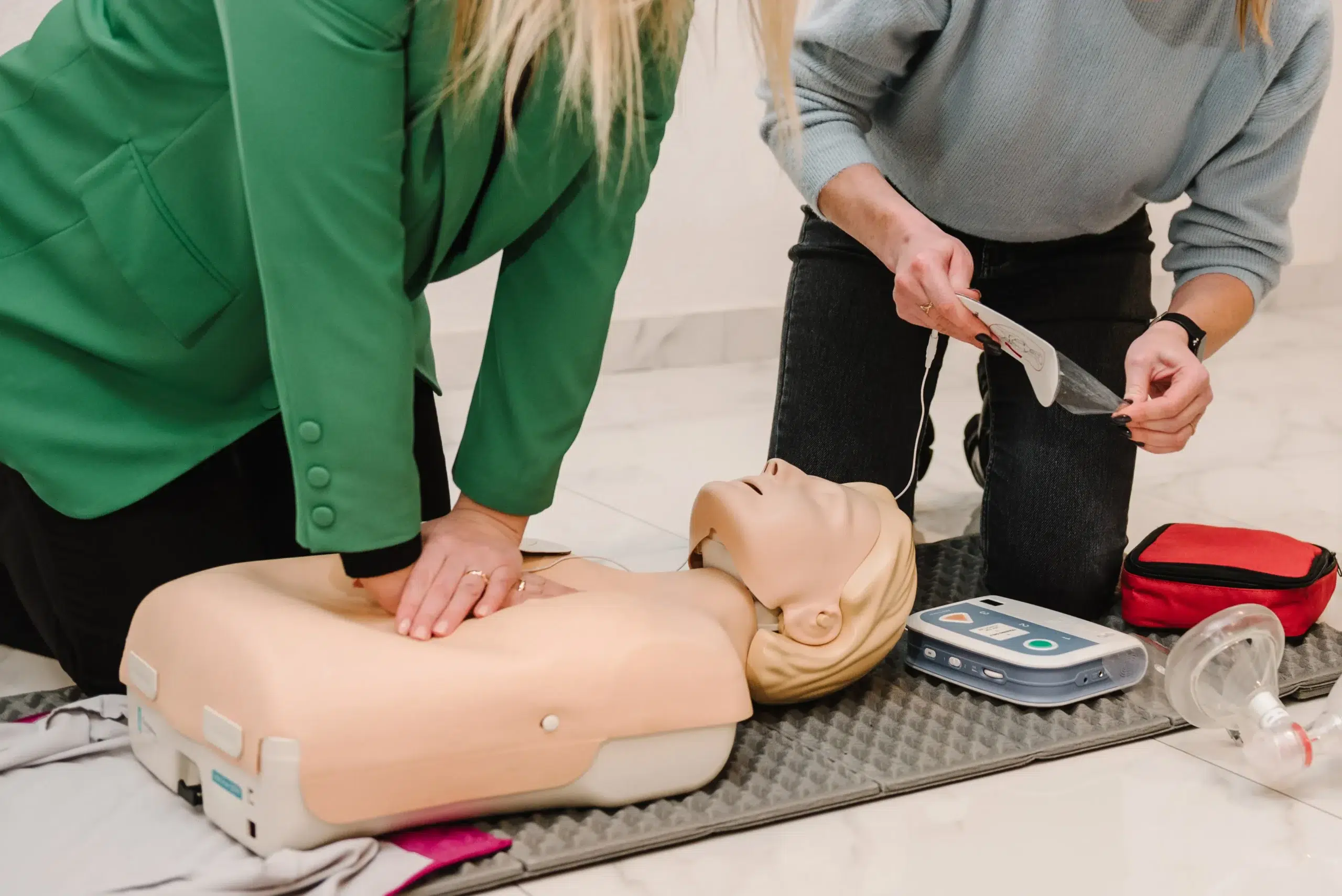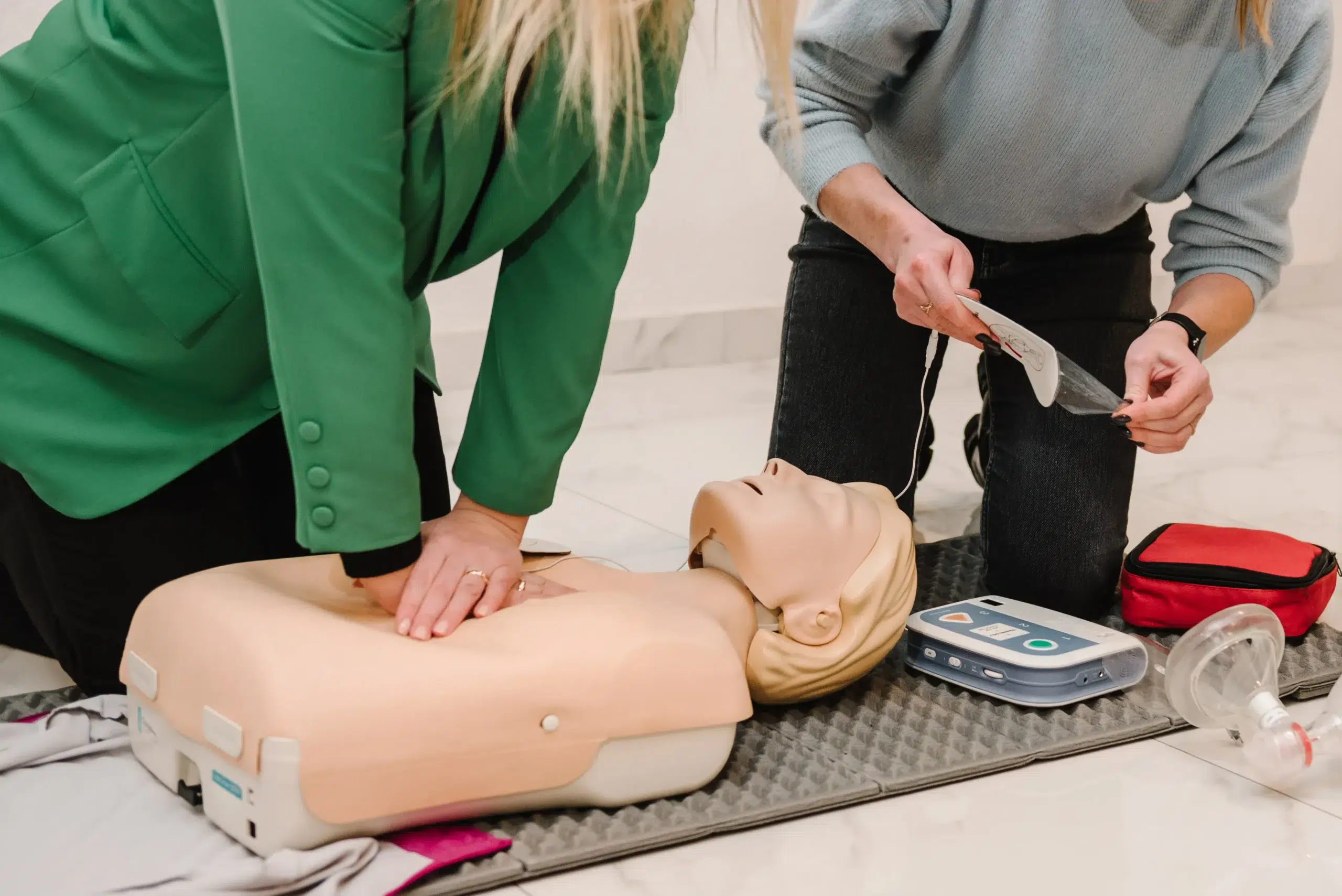Empowering yourself with life-saving skills starts with CPR training. This guide explores the world of CPR, from understanding its importance to finding the right course for you. We’ll cover the different types of CPR certifications, who should consider training, and how to locate CPR courses in Orangevale, highlighting the offerings of Citrus Heights CPR Classes. We’ll also discuss what to expect during training, how to prepare, and the steps to maintain your certification. Whether you’re a healthcare professional or simply want to be prepared for emergencies, this guide has you covered.
Key Takeaways
- CPR Certification Empowers You to Act: Equipping yourself with CPR training, including options like BLS, ACLS, and PALS, provides the confidence and skills to respond effectively during medical emergencies.
- Finding the Right CPR Class Is Easy: Explore various CPR training providers and consider factors such as course type, cost, and schedule to find a class that fits your needs and learning style.
- Stay Current to Save Lives: Maintain your CPR skills through recertification and continuing education to ensure you’re always prepared with the latest, most effective techniques.
What is CPR and Why is it Important?
CPR, or Cardiopulmonary Resuscitation, is a lifesaving technique used when someone’s heart stops beating or they stop breathing. It combines chest compressions and rescue breaths to circulate oxygenated blood to the brain and other vital organs. Learning CPR empowers you to respond effectively in such emergencies, potentially bridging the gap until professional medical help arrives. A solid CPR education program can undoubtedly save lives, significantly improving the chances of survival for someone experiencing cardiac arrest.
CPR Course Types
Several types of CPR courses cater to different needs and skill levels. Citrus Heights CPR Classes offers a range of options, from basic CPR training to specialized certifications like BLS, ACLS, and PALS. Understanding these different courses will help you choose the right one.
- Basic CPR and First Aid: This course covers the fundamentals of CPR for adults, children, and infants, often including AED training and basic first aid techniques. It’s suitable for anyone wanting to learn these essential lifesaving skills, including parents, teachers, and community members.
- Basic Life Support (BLS): BLS certification is designed for healthcare professionals and focuses on single-rescuer and team-based CPR scenarios. It also covers advanced airway management and the use of bag-valve masks.
- Advanced Cardiovascular Life Support (ACLS): ACLS courses build upon BLS skills and are geared towards healthcare providers involved in managing cardiovascular emergencies. They cover topics like ECG interpretation, pharmacology, and team dynamics.
- Pediatric Advanced Life Support (PALS): PALS courses focus on the specialized needs of infants and children during emergencies. This certification is essential for healthcare professionals working in pediatrics or emergency medicine.
Who Needs CPR Training?
CPR training is valuable for a wide range of people. While healthcare providers often require certification for their jobs, many others can benefit from knowing CPR. Whether you’re a healthcare provider seeking recertification or just learning these essential skills for the first time, CPR training can equip you to handle emergencies effectively. Consider taking a CPR course if you are a:
- Healthcare professional (doctor, nurse, EMT, etc.)
- Childcare provider
- Teacher or school staff member
- Parent or grandparent
- Coach or fitness instructor
- Lifeguard or swim instructor
- Security guard
- Anyone interested in being prepared for emergencies
Learning CPR can give you the confidence and skills to make a difference in a critical situation. Even basic CPR knowledge can significantly impact someone’s chances of survival.
Find CPR Courses in Orangevale
Finding the right CPR class can feel overwhelming, but plenty of options are available in and around Orangevale. Let’s explore some of the providers and the types of training they offer.
Citrus Heights CPR Classes
Citrus Heights CPR Classes offers a comprehensive range of courses to suit various needs, from basic CPR training to advanced certifications. Their convenient location serves the greater Sacramento area, including Orangevale. You can explore their course catalog to find the right fit for you.
Basic CPR Training
This foundational CPR course covers essential life-saving techniques for adults, children, and infants. It’s perfect for anyone looking to learn CPR, whether required for work or for personal knowledge. Learn more about their basic CPR training.
Basic Life Support (BLS)
The BLS course provides healthcare providers, first responders, and other professionals with the skills and knowledge to respond to life-threatening emergencies. It includes CPR, AED use, and other critical interventions. Citrus Heights CPR Classes offers BLS certification through the American Heart Association.
Advanced Courses (ACLS, PALS)
For healthcare professionals requiring advanced training, Citrus Heights CPR Classes offers ACLS (Advanced Cardiovascular Life Support) and PALS (Pediatric Advanced Life Support) certification courses. Visit their website for details on their ACLS and PALS courses.
Flexible Training Options
Recognizing that people have busy schedules, Citrus Heights CPR Classes provides flexible training options, including weekday and weekend classes, on-site training, and blended learning formats. Learn more about their flexible scheduling and group discounts.
Other Local Providers
Several other organizations offer CPR training in or near Orangevale.
OVparks
OVparks offers a Basic Life Support CPR & AED course certified by the American Heart Association (AHA).
Professional CPR
Professional CPR provides a range of classes, including First Aid, CPR, and BLS training for individuals and businesses in Orangevale.
CPR Edu
CPR Edu offers CPR certification courses, including Pediatric First-Aid with CPR/AED training.
American Red Cross
The American Red Cross offers various CPR and First Aid courses to meet different needs. While their website lists Citrus Heights, they may also serve surrounding areas like Orangevale. It’s always best to contact them directly to confirm.
Local Community Centers and Fire Departments
Check with your local community centers and fire departments, as many offer CPR training and certification courses. This can be a convenient and affordable option.
What Happens During CPR Training?
CPR training blends classroom learning with hands-on practice, giving you the confidence to respond effectively in emergencies. Here’s a glimpse of what you can expect:
Course Length and Structure
CPR courses vary in length depending on the certification. Basic CPR training can often be completed in a few hours, while more advanced certifications like BLS for healthcare providers may take a full day. Citrus Heights CPR Classes offers a range of options, from basic CPR training to specialized certifications like BLS, ACLS, and PALS, allowing you to choose the course that best fits your needs. These courses typically include interactive lectures, demonstrations, and videos, breaking down complex concepts into easy-to-understand steps. Citrus Heights CPR Classes offers courses that fit a variety of schedules and learning styles.
Practice and Assessment
Hands-on practice is the core of any good CPR class. You’ll learn proper techniques for chest compressions, rescue breaths, and how to use an AED on adult, child, and infant manikins. Quality training programs, like those offered by Citrus Heights CPR Classes, equip you with the knowledge and skills to act confidently in an emergency. Instructors provide personalized feedback and guidance, ensuring you master the correct techniques. You’ll also learn to recognize the signs of a heart attack and stroke, and the appropriate steps to take.
Certification Process
Upon successful completion of the course and skills testing, you’ll receive your CPR certification card. Some providers, like Citrus Heights CPR Classes, offer BLS courses starting around $59.95, including same-day certification cards. This card is typically valid for two years. Check with your certifying organization or training provider like Citrus Heights CPR Classes for details on renewal courses. Maintaining your certification ensures your skills are current and you’re prepared to respond effectively when needed.
Typical Participant Experiences
Participants often describe CPR training as empowering and informative. A solid CPR education program can undoubtedly save lives, as emphasized by CPR Education. Learning these life-saving skills can boost your confidence and prepare you to assist family, friends, or even strangers in a critical situation. Even if you’ve never been trained, remember that hands-only CPR—providing continuous chest compressions at 100 to 120 per minute—can be effective until professional help arrives. Taking a CPR class provides the knowledge and practice to perform these actions effectively.
Choose the Right CPR Course
Finding the right CPR course can feel overwhelming, but it doesn’t have to be. Whether you’re a healthcare professional needing recertification or learning these lifesaving skills for the first time, understanding your needs is the first step. This guide will help you find the perfect course, whether it’s BLS certification or another type of training.
Factors to Consider
First, think about why you need CPR training. Are you required to have a specific certification for your job, such as BLS for healthcare providers? Or are you learning CPR for personal knowledge? Citrus Heights CPR Classes offers various options, from basic CPR training to specialized certifications like BLS, ACLS, and PALS. Clarifying your goals will help you narrow down the choices.
Next, consider which course format works best for you. Do you prefer in-person, hands-on instruction, or would online or blended learning be more convenient? Think about your learning style and how you best absorb new information.
Compare Course Costs
CPR course costs vary depending on the provider and the certification level. Basic CPR classes are generally less expensive than more advanced courses like BLS or ACLS. BLS classes typically cost between $25 and $35. However, some providers, including Citrus Heights CPR Classes, offer competitive rates and perks like same-day certification cards. Make sure to check if the course fee includes study materials, certification fees, and any other additional costs. If you’re signing up with a group, ask about group discounts. Citrus Heights CPR Classes also has a low price guarantee, so you can feel confident about the value.
Scheduling and Flexibility
Life gets busy, so finding a course that fits your schedule is essential. Look for providers offering flexible scheduling, including weekday and weekend classes. Some providers also offer on-site training, a convenient option for workplaces or community groups. If you have a packed schedule, explore blended learning formats that combine online coursework with in-person skills sessions. Contact Citrus Heights CPR Classes to discuss scheduling options.
Prepare for Your CPR Course
So you’ve signed up for a CPR class—fantastic! Now, let’s make sure you’re totally prepared to make the most of your training. A little prep work goes a long way.
What to Bring
Most CPR courses don’t require you to bring much. Comfortable clothing is key, as you’ll be practicing skills like chest compressions and rescue breaths. Think athletic wear or something you can easily move around in. You’ll want to be able to kneel and get down on the floor comfortably. A small notebook and pen can be handy for jotting down notes if you’re so inclined. Your CPR provider, like Citrus Heights CPR Classes, will provide all the necessary equipment, such as mannequins and AED trainers. They offer a variety of courses, including BLS certification, allowing you to focus on learning the lifesaving skills.
Pre-Course Materials
Before your class, check with your training provider about any pre-course materials. Some providers might have student handbooks or online resources you can review beforehand. This can give you a head start and familiarize you with the terminology and concepts. Citrus Heights CPR Classes offers a range of courses, from basic CPR training to more specialized certifications like ACLS and PALS, and they can tell you exactly what you need to know before you arrive.
Physical Requirements
CPR training involves hands-on practice, so be prepared for some physical activity. You’ll be performing chest compressions, which can require some upper body strength and stamina. If you have any physical limitations or concerns, chat with your instructor beforehand. They can offer modifications or guidance to ensure you can fully participate and learn the techniques effectively. For a better understanding of the physical demands, check out resources like the Citrus Heights CPR Classes blog, which often provides details about their courses, including BLS classes that cover essential lifesaving skills.
Maintain Your CPR Certification
Once you’ve earned your CPR certification, staying current is key. Knowing the latest techniques can make a real difference in an emergency. This section covers why staying up-to-date is so important and how you can maintain your CPR skills.
Recertification
CPR guidelines and best practices evolve with ongoing research. Recertification ensures you’re using the most current, evidence-based techniques. Renewing your CPR certification means you’ll learn the latest techniques, which can significantly increase the effectiveness of your life-saving efforts. Check with your certifying organization, like the American Heart Association, for their specific recertification requirements and timelines. Citrus Heights CPR Classes offers a variety of recertification courses to fit your schedule.
Continuing Education
Even if your certification isn’t due for renewal yet, continuing education in CPR is a smart move. Regular practice and familiarization with the techniques increase your confidence and ability to respond quickly and effectively during an emergency. Look for opportunities to refresh your skills through workshops and refresher courses.
Stay Updated on Guidelines
Staying informed about the latest CPR guidelines is crucial for providing the best possible care. Feedback mechanisms in CPR training, both real-time and post-event, are critical for improving training effectiveness and patient outcomes. Subscribe to newsletters from reputable organizations and participate in continuing education opportunities to stay on top of any changes in CPR protocols. You can also contact us at Citrus Heights CPR Classes to learn about updated guidelines.
Related Articles
- Why CPR is Important in Healthcare – Citrus Heights CPR Classes
- The Importance of CPR in Saving Lives
- Common CPR Myths Everyone Should Know
- Best CPR Training in Sacramento: Courses and Providers
- CPR Training in Orangevale: Your Complete Guide – Citrus Heights CPR Classes
Frequently Asked Questions
How do I choose between Basic CPR and BLS certification? Basic CPR is a great starting point for anyone wanting to learn lifesaving skills. BLS, however, is specifically designed for healthcare providers and covers more advanced techniques. Think about your current role and future career goals when making your decision. If you’re unsure, reach out to a training provider like Citrus Heights CPR Classes; they can help you choose the right course.
What if I have a busy schedule and can’t attend a traditional CPR class? Many CPR training providers understand busy schedules and offer flexible options. Look for providers offering evening and weekend classes, blended learning (online coursework combined with in-person skills sessions), or even on-site training for groups.
How much does CPR certification cost, and what’s included in the fee? Costs vary depending on the provider and the type of certification. Basic CPR classes are typically less expensive than advanced certifications like BLS or ACLS. Make sure to ask the provider if the course fee includes your study materials, the certification card, and any other extras. Don’t hesitate to compare prices and ask about group discounts if you’re signing up with friends or colleagues.
I’m certified in CPR, but it’s been a while. How can I refresh my skills? Even if your certification isn’t due for renewal yet, refreshing your skills is always a good idea. Look for refresher courses or workshops offered by CPR training providers. These shorter courses can help you stay sharp and confident in your abilities.
What if I have physical limitations? Can I still participate in CPR training? Absolutely! Talk to your instructor about any physical limitations you have. They can often modify certain techniques or offer alternative approaches to ensure you can fully participate and learn the skills effectively. Don’t let physical limitations hold you back from learning this important skill.


